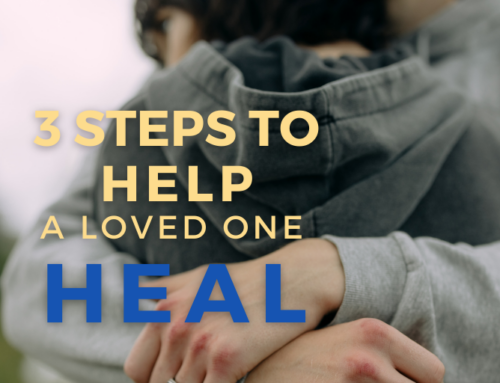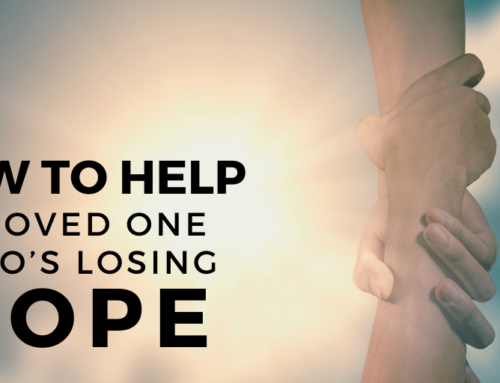I had coffee last week with a friend who is also a Christian living with a mental illness. She was sharing with me her struggle to break free of unhealthy relationships that were leading her to unholy living. She was not caring for herself by receiving God’s care or the care of others. We discussed how what has come to be called co-dependent relationships are really another form of idolatry. When we believe another person needs us (and only us) to save them from ruin. I said it is like when a person we care about is in quicksand. The last thing they need is for us to jump into the quicksand and sink with them. They need us to stay on solid ground and get something they can hold onto to get out. A Savior who is not us.
Those of us with a mental illness, as well as those loving someone with a mental illness struggle to find a healthy balance in relationships. We often play out roles of rescuer and rescued and this threatens God’s intended bond as sacred partners. This is a major factor in the dreadful statistic that over 90% of persons with bipolar disorder who get married will divorce. But this doesn’t have to be the case. There can be hope for those who live by faith in a God of second chances, a God who forgives so we can forgive ourselves and others.
I have a friend who was diagnosed with bipolar after he was married and had two young children. After a dramatic episode, he became temporarily disabled, unable to think straight or perform simple tasks. He would eat. Sleep. Take meds. Eat. Sleep. Meds. Over and over. This went on for months until they finally found the right combination of drugs to stabilize his functioning. He then came out of the fog, returned to work, and carried out his role as a contributing community member.
But his marriage was never the same. His wife became more like his nurse than his partner. She kept him at a distance as a husband and father. Things were never the same. This went on for 15 years until they separated. But the separation had already occurred when he came home from the hospital after his episode. They just held onto false hope that things would get better. They didn’t. Instead, they kept living together as patient and nurse, bruised and broken and unable to heal.
I’ve been co-leading a class called “Walking Alongside Persons with Mental Health Challenges.” We’ve covered much ground and as we come to our final session, I want to leave them with some practical tips on how to care for themselves so they can care for others. I put the question on my Facebook Mental Health page and have already gotten a number of responses: hiking, shopping, drinking Diet Coke, talking with friends. Everyone needs an outlet, an avenue, for self-care, for divine care, in order to avoid being consumed by a consuming relationship.
Being in any relationship is hard work. The difficulty is multiplied when one has a serious mental illness. But we are not without hope. The Bible puts things in eternal perspective:
Therefore we do not lose heart. Though outwardly we are wasting away, yet inwardly we are being renewed day by day.For our light and momentary troubles are achieving for us an eternal glory that far outweighs them all. So we fix our eyes not on what is seen, but on what is unseen, since what is seen is temporary, but what is unseen is eternal. (2 Corinthians 4:16-18)







